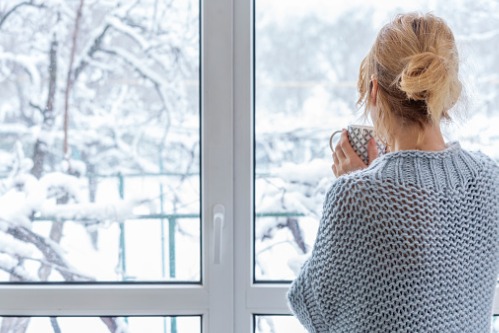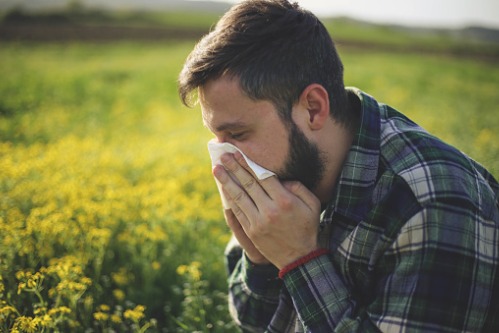
Don’t Let Winter Allergies Ruin the Season
They say it’s the most wonderful time of the year, but winter can be a difficult time for those with allergies. The cold weather and changing seasons often worsen congestion, runny nose, itchy eyes, and sneezing. But what exactly causes these symptoms? Let’s talk about winter allergies and what you can do to keep your symptoms at bay during the holidays.
Winter Allergies: What Are They Really?
You may be familiar with what causes springtime allergies: pollen. But what exactly causes allergies in the winter? Think about it: if the flowers are dormant and the trees are bare, then pollen cannot be in the air. So what’s causing all those wintertime allergy symptoms?
The answer: indoor allergens. Winter allergies exist, but they result from increased exposure to indoor allergens like pet dander, dust mites, and mold. Because people spend more time indoors during the winter months, they may have exacerbated symptoms from these allergens.
Dust Mites: Dust mites live in warm, damp environments like bedding, carpets, and furniture. They thrive in the winter months when people spend more time indoors with the heat on.
Pet Dander: Pets are a beloved part of some families, but their dander can get on almost any indoor surface, especially as they spend more time indoors during the winter.
Mold: Damp weather can promote mold growth, especially near exterior doors and humidifiers.
Preventing Winter Allergies
While winter allergies may be inevitable, there are some simple steps you can take to prevent uncomfortable symptoms during the cold months of winter.
Clean
The first step? Clean! An important part of preventing allergies in the winter is cleaning up after yourself and your pets, so indoor allergens don’t have a chance to build up. Vacuum your carpets and furniture often, wash your sheets in hot water every week, and dust regularly.
Ventilate
Another step is to keep your home well-ventilated. This will help reduce moisture levels that can promote the growth of mold and dust mites.
Brush Pets
If you do have pets, make sure to brush them regularly (outside if you can). Not only will this help reduce dander levels on the furniture and carpeting in your home, but it can also keep pet hair out of the air.
Treating Winter Allergies
When winter allergies do strike, there are a few things you can do to help relieve your symptoms.
Over-the-Counter Medications
Many over-the-counter medications can help relieve allergy symptoms, like nasal sprays, antihistamines, and decongestants.
Prescription Medications
If over-the-counter medications don’t provide relief, your doctor may prescribe other medicines like nasal steroids or allergy shots.
Stay Hydrated
Staying hydrated is always essential, but it’s especially crucial when you’re dealing with allergies. Drink plenty of fluids to help loosen congestion and keep your sinuses clear.
Rest
When your body is fighting off winter allergies, it’s important to get plenty of rest. This will help your immune system work more effectively.
By following these tips, you can keep winter allergies from ruining your holiday season. If you continue to experience symptoms, be sure to talk to your allergist about additional treatment options.
Contact Northeast Allergy, Asthma & Immunology
Northeast Allergy, Asthma & Immunology offers comprehensive care for patients with winter allergies. Our specialists can help you find relief from your symptoms to help you enjoy the winter season.



